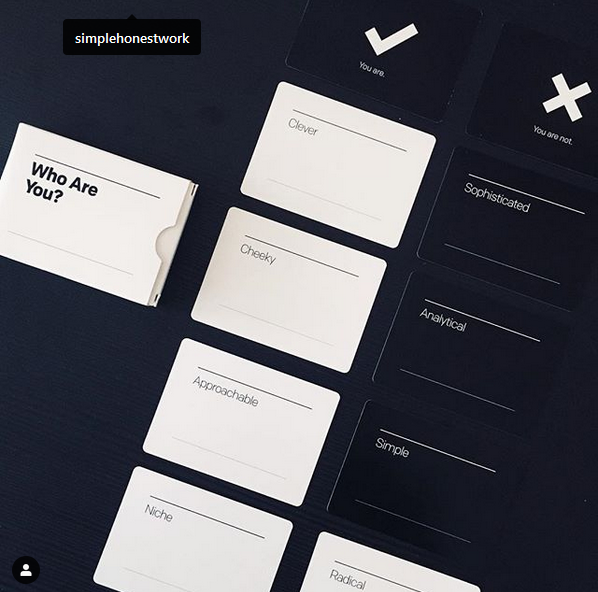Cherry Picked Games now has four titles under our belts. It’s a diverse catalog, to say the least. Switching between genres and themes helps keep us engaged and excited, both for the new games and the old. What it doesn’t help with is creating a clear niche for gamers to associate with our brand. We’re not an RPG publisher or “the drinking game dudes”. So, we have to be consistent in our approach to games. There’s a Cherry Picked style that’s been cultivated over the years. We want people to have expectations about our games that go beyond simple mechanics or illustrative styles.
A couple years ago, we did a branding exercise to focus ourselves. We went through a Brand Deck from Simple Honest Work and picked out the keywords that defined us and our mission. It’s a process I’d recommend any small business go through to help with self-guidance. We ended up with this adjective list:
We are
Clever/Cheeky
Approachable
Niche
Crafted
We are not
Sophisticated
Simple
Radical
Analytical
This reflects both our design principles and our public personas. We strongly value community and inclusivity. We want you to feel welcome at our convention booth, even if our games aren’t your jam. When conventions are a thing again, we’ll dive more into this philosophy and the social outreach parts of CPG. For now, we’ll stick to the design guidelines.
When we work on a new game, we tailor it to a specific audience (as we talk about in the Far Away Retrospective series). We have little interest in making a globally acceptable game, because those games are usually mediocre and forgettable (with a few exceptions). A recent review from Three Minute Board Games pointed out that Far Away was not for everyone, but that it might be an amazing experience for some. Of course, we still want to make a fun game; not some ludo-narrative exploration of feelings (though there’s a time and place for those). Cherry Picked games have to be funny, ideally in a subversive way. Weaving comedy throughout the experience helps reinforce the social interactions we’re trying to foster through our games.
To distill this high-level philosophy into a manageable path for the team, we use a series of questions to frame a new game:
How does this game encourage player interaction?
What makes this game funny, irreverent, or cheeky?
What makes this game different from anything else out there today?
What’s the thematic pitch for the game?
What’s the mechanical pitch for the game?
Answering these questions speaks to why the game is worth our energy, investors’ money, and your time. If we can’t clearly articulate answers, then we can’t explain why the game is good. As we begin to design Game #5, we return to these questions and make sure we’re working towards answering them.
We love going to board game conventions. We get to mingle with fans of the hobby and share our games with eager players. Best of all, we get to see people who played with us in the past. It’s remarkably affirming to hear someone recall memories their game of Catalyst three years ago. We need those people to know that the vibe they loved from the last game will be in the next box. They should be confident all our games are Cherry Picked.
-- Alex

